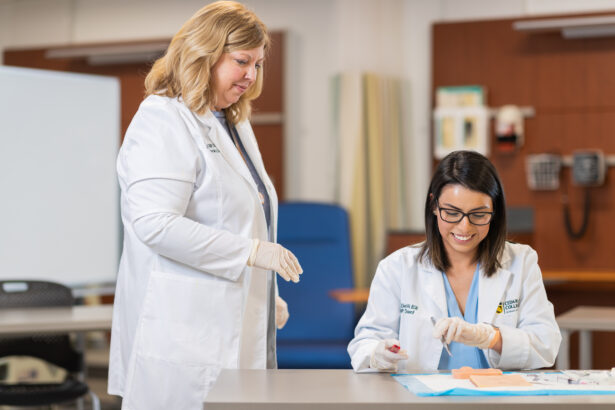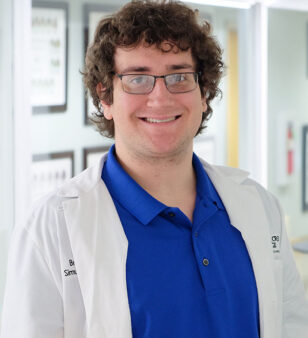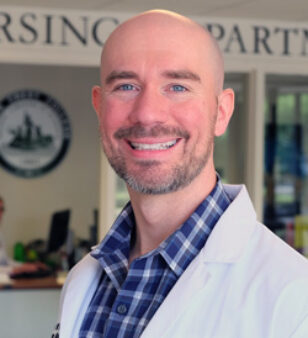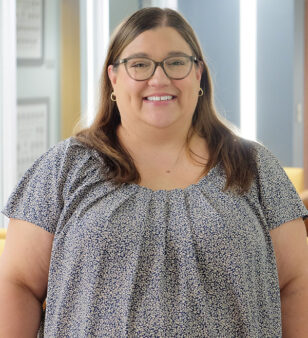We see you providing quality healthcare to the next generation of learners in a school setting. Our online multi-disciplinary School Nurse Certification (SNC) program will provide you with the necessary knowledge and practical skills to serve the needs of school-age children and adolescents.
Upon graduation, you will meet the requirements of the PDE for Level 1 School Nurse Certificate.
Our SNC program is available to complete fully online, with the exception of your 105 clinical hours, in as little as three semesters so that you can take your nursing career to the next level with the flexibility you need to succeed.
The SNC is a state-based certification and is designed to meet the requirements of the Pennsylvania Department of Education (PDE) for Level I School Nurse Certification. Other states may accept this program for full or partial completion of that state’s requirements. To determine if a state other than Pennsylvania will accept this program, please contact the Department of Education in that state.
Why Apply to Cedar Crest College’s Online SNC Program?
- Flexibility: Coursework is offered in an online, providing the flexibility you need to manage school & life.
- Our Reputation: When you become a part of our School of Nursing, you become part of a long tradition of modern nursing. Cedar Crest nurses are known throughout the area for their competence, care, and compassion.
Dive A Little Deeper
Accelerated BSN Information Session

Upcoming Admissions Events
Cooperative Agreements
Cedar Crest College collaborates with several academic institutions to provide our students with innovative pathways that help them succeed in their chosen fields.

How To Apply
Ready to apply as a graduate student?

Accreditation

The Pennsylvania Department of Education approves the certification programs within the Education Department at Cedar Crest College. The Pennsylvania Department of Education is the official state body that approves programs for professional certification in Pennsylvania.
Faculty & Staff
Who’s teaching you is as important as the curriculum you choose.
Let’s put a face to some of the names you’ll be seeing on the course listings!

Wendy Robb
Dean for the School of Nursing/Professor
Sandra Axt
Coordinator RN to BSN Program/Senior Instructor


Gail Brown
Clinical Coach and Resource Specialist/Instructor
Deborah Burnett-Olsen
Director of the Nurse Anesthesia Program/Assistant Professor
Jacklyn DelPrete
Assistant Director of Graduate Nursing Programs

Eileen Fruchtl
Director of the Accelerated BSN Program/Senior Instructor





Catherine Zurawski
Chair of Graduate Nursing Programs/Associate Professor
Morgan Collins
Scheduling Coordinator-Graduate Nursing Programs
Brendan Conway
Nursing Simulation Center Technician


Mackenzie Lewis
Administrative Assistant Undergraduate Nursing Programs
Tricia Ouellette
Administrative Assistant Graduate Nursing Programs
Michelle Rieder
Nursing Simulation Operation Specialist
Leslee Schoonover
Scheduling Coordinator Undergraduate Nursing Programs
- School of Adult and Graduate Education
- sage@cedarcrest.edu
- P: 610-740-3770
- Traditional Admissions
- admissions@cedarcrest.edu
- P: 800-360-1222
- F: 610-740-3780